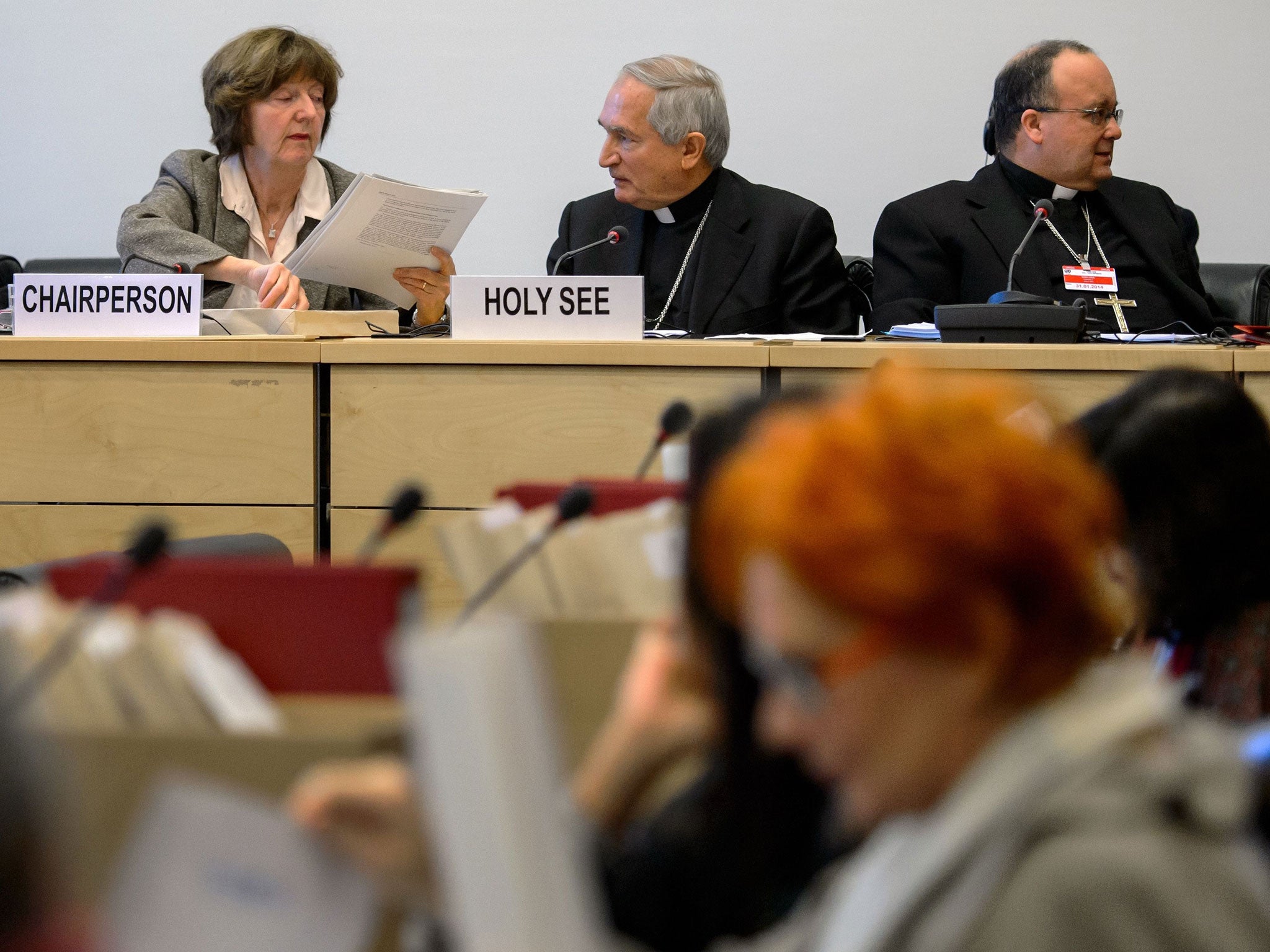Catholic sex abuse: UN blasts Vatican for failing to protect children from paedophile priests

The United Nations today lambasted the Vatican for failing to protect children from paedophile priests as investigators in Geneva probe the global scandal that rocked the Catholic Church to its foundations.
While the damaging sex abuse headlines have died down as the Holy See basks in the favorable PR provided by its popular new leader Pope Francis I, today’s bruising inquisition reminded the world of the questions the Church has yet to answer.
The UN committee's main human rights investigator, Sara Oviedo, pressed the Vatican on the alarming frequency in which abusive priests have been moved to different areas rather than turned over to police. Given the church's "zero tolerance" policy, she asked, why were there "efforts to cover up and obscure these types of cases?”
Another panel member, Hiranthi Wijemanne, asked Vatican representatives: "Why is there no mandatory reporting to a country's judicial authorities when crimes occur? Taking actions against perpetrators is part of justice.”
Monsignor Charles Scicluna, the Vatican’s former chief sex crimes prosecutor, denied that the Holy See encourage cover-ups.
"Our guideline has always been that domestic law of the countries where the churches operate needs to be followed," he said.
Archbishop Silvano Tomasi, the Vatican's representative in Geneva, said that the Holy See welcomed any suggestions, which could help it in protecting children.
But critics of the Vatican were sceptical, given that as recently as last month the Holy See refused to provide the panel with key information, including the total number of abuse cases it was aware of -- a figure thought to be in excess of 4,000. The Church has also ducked other committee questions.
The Vatican, as member of the UN, is being held to account for apparent breaches of the UN Convention on the Rights of the Child, which calls for signatories to take all appropriate measures to protect children.
The Holy See ratified the convention in 1990. It didn't provide progress reports for nearly a decade, however, and only submitted one in 2012 after coming under criticism following the 2010 explosion of child sex abuse cases around the world.
But today’s unprecedented inquiry has come largely as a result of intense pressure from victims’ groups. Their evidence of case studies in Mexico and the UK, plus grand jury investigations in the US, and government fact-finding inquiries from Canada, Ireland and Australia suggest the Vatican's culture of secrecy and fear of scandal contributed the suffering of thousands of children.
Campaigners are demanding to know why the most senior figures in the church failed to act for decades against notorious paedophiles such as Mexico’s Marcial Maciel, a friend of John Paul II, the Pope currently being fast-tracked for sainthood.
Other evidence of complicity includes correspondence from a Vatican cardinal praising a French bishop's decision to protect his abusive priest, and another Vatican directive to Irish bishops to refrain from mandatory reporting of abusers to police.
"When abusers are in jail, they don't harm kids," said Miguel Hurtado, a member of the main US-based victims' advocacy group SNAP, who said he was abused by a priest in the Catholic youth group he attended as a youngster in Catalonia, Spain. "And they failed to do that."
Pope Francis announced last month the a new Vatican committee to tackle clerical abuse but so far the Pontiff ha said little on the scandal. In a homily in Rome today, he said, however: "Do we feel shame? There are so many scandals that I do not want to name them individually but everyone knows about them.”
But Barbara Blaine, president of SNAP, told AP, that the Vatican's responses seem like "more of the same".
Join our commenting forum
Join thought-provoking conversations, follow other Independent readers and see their replies
Comments